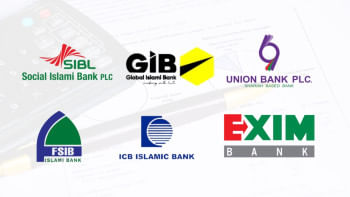Aiming for higher growth in 2017

Don't we remember the fortune-tellers sitting beside the footpath in front of Dhaka College? They gave me a good lesson that we shouldn't say bad things when talking about someone's future. After a bit of a setback in the romance deparmtent, I resorted to being one of their customers. The fortune-teller instructed the Tia Pakhi, officer-in-charge, to choose any of the envelopes placed on the ground. Later I realised that the letters in all the envelopes tell the same story of good luck for the future. Unfortunately, many economists fail to understand this psychology and they don't hesitate to openly foresee a dismal future.
The challenges on the international front the year 2017 will pose will be less impactful than domestic debility in private investment. Macro stability will continue to persist without remarkable improvement in the financial sector. The banking sector particularly with nonperforming loans may not see any quick cure. Consumers will pull the economy and so will the government sector. The external sector will still remain strong in contributing to foreign currency reserves despite a noticeable collapse in remittances. The political front will draw little attention to both businesses and households since the election is remote, seemingly not before early 2019. The regime will be more successful in transmitting its dream to the public as the Padma Bridge and other mega projects are turning into reality.
The year of 2017 can best be used to engineer higher growth. Macro stability is commendable if not the best. Inflation was as low as 5.6 percent in November 2016 despite 7 plus growth – a situation Bangladesh has rarely witnessed in the past. Important is the trend of inflation which was 11 percent just five years ago. Not long ago it was 7 percent in December 2014 when many economists predicted a sharp rise following the execution of the public wage hike. That didn't happen, thanks to incredibly low oil prices and resultantly weak commodity prices. Believing in the monetary phenomenon of inflation, the central bank also remained conservative on money growth which came down from 16.4 percent in June to 13.8 percent in November 2016 – a number that just accommodates the growth rates in output and broad money and keeps only a one percent breathing space for monetisation.
Since inflation is the major player in preserving or upsetting macro stability, and since it is under control, a favourable moment beckons the regime to undertake another bunch of mega projects like the Dhaka Patal Rail, an elevated bullet train between Chittagong, Dhaka, and Khulna, the second Bramhaputra Bridge in Mymensingh and its rapid connectivity with the land port in Nakugaon. While the list will be unending, at least the Patal Rail project is a must for the largest growth centre of Bangladesh, no matter how many metro rails or flyovers on the surface are built in coming years. While our neighbouring India is building underground metros one after another, we still seem to be unaware of how much we need to pay for delaying this project. Dhaka, approaching almost 20 million people, will not find its parallels in the world without underground trains. It is already among the most unlivable cities on earth. 2017 expects to see some elevated attention to Dhaka for the sake of sustainable growth before the city really turns completely dysfunctional.
Since the government is contemplating on turning a part of the reserves into a sovereign wealth fund, funding for development projects will be easier. A temporary pressure on reserves will gradually dissipate since exports are still rising at 5.5 percent in November 2016. A 17 percent fall in remittances will greatly be offset by a corresponding 15 percent fall in imports, sending the overall balance in the external sector to a figure around 3 to 4 billion dollars – which will in turn fill the gap created by the government in the vault of reserves.
The year 2017 seems hopeful for at least six reasons: 1) political disturbances will be dormant 2) foreigners will find the improved security ensured by the government's success in catching militants a new incentive to think about more projects 3) local governments will expedite their development projects after the district level elections 4) enhanced revenue collection will boost the coming budget to be aggressive 5) sectors like construction, transport, communication, and technology will grow noticeably for low input prices, and finally 6) rebalancing China and India in the engagement of development aspirations will be a positive attraction to the global investors.
This backdrop will encourage the government to pursue a budget where a growth target of 7.5 percent and an inflation target of 5 percent will be easier to achieve for the next fiscal year of 2018. 2017 will still be a year for the government take some unpopular yet necessary steps before the election. The unpleasant task should include 1) expediting the speed of justice at all levels 2) expanding revenue and tax offices to local levels 3) uprooting any elements of militancy that are directly detrimental to foreign investment and growth 4) disciplining the traffic of megacities 5) outsourcing the management of mega projects wherever is needed to complete them by reasonable deadlines, and finally 6) streamlining bureaucracy to address on how to improve Bangladesh's rank in the ease of doing business index.
The paragraph of hopes heavily hinges on the paragraph of unpleasant tasks. That is why domestic challenges are much more laborious than external ones for the regime in the New Year.
The writer is associate professor of economics at the State University of New York at Cortland. [email protected]

 For all latest news, follow The Daily Star's Google News channel.
For all latest news, follow The Daily Star's Google News channel. 



Comments